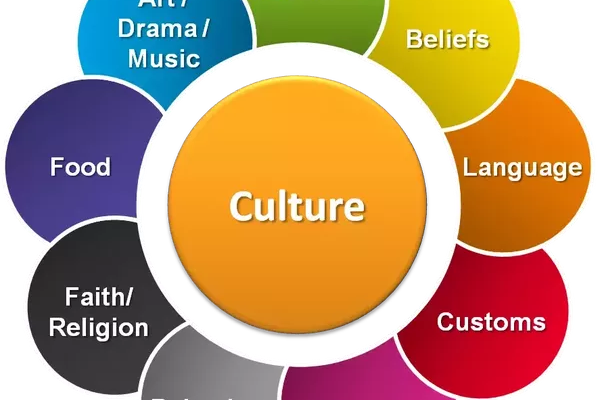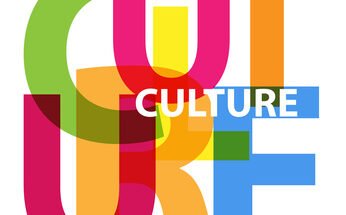A black London taxi pulled up at the station and a smartly dressed African (Black) businessman alighted. He quickly paid his fare and hurried into the station. The taxi driver turned to the nearest Anglo-saxon, and declared ‘these Africans ain’t got any culture’.

I do not know all that had transpired between the two men, possibly the taxi driver had not received the tip he thought was due to him. However the incident illustrated the clash of cultures that so often occurred between the Occidental West, Oriental East and the Negroid centre. Occidental west for this article refers to the countries of North Atlantic treaty i.e. the Americas (US, Canada etc and Europe). The Oriental East refers to Asian countries (including the Islamic Middle East) the Negroid centre refers to primarily Sub-Saharan Africa.
The term “culture” is applied in various ways at a popular level. It is used to denote a preference for Mozart rather than Madonna, or for Queens English rather than local slang.
The anthropologist has provided us with a broader and less critical definition of culture. In this usage, the word does not mean the cultivation of the arts and graces, it refers to learned, accumulated experience. The anthropological concept of culture was one of the most important and influential ideas in twentieth century thought (1871).
According to E.B. Tylor (1871) “That complex whole which included knowledge, beliefs, arts, morals, laws, custom and any other capabilities and habits acquired by man as a member of society”.
Paul Hebert (1976) “The integrated system of learned behavior patterns, ideas and products characteristic of a society”.
Culture relates to the ways that people live out their lives in the midst of their families and neighbours. It concerns the ways that people cope with everyday problems and seek meaning to life.
- Culture is Learned: The first aspect of culture to be noted is that culture is learned. Consider the way children learn to speak. They listen to adults around them and try to imitate the sounds they hear. Gradually, the sound made by the children become more clearly defined and communication begins. The language spoken does not depend upon genetic structure, but is quickly learned during the first few months of life. Children in Britain are scolded by their mother for eating with their fingers, and for not eating ‘properly’ with a knife and fork. In contrast, children in Africa are encouraged to eat with their right hands from the communal dish.
- Culture is behavior: The second aspect of understanding the nature of culture is that it relates to the total pattern of behavior. ‘Culture’ is the way that people behave and relate within society. The word describes how people dress, eat, sleep, bathe, conduct meetings, work, marry and perform other activities that are part of daily life.
- Culture is a system of ideas: Faced with the bewildering variety of behavior, the outsider may wonder how member of a society knows how to believe and respond. Behind the observable patterns of culture may be identified certain basic assumptions about life experiences. People in a society may not be consciously aware of the assumption, but they provide an unwritten guide. These can be likened to the rules of a game of chess. The chess pieces can be moved in a variety of ways with endless permutations but all games of chess follow a common set of rules. Taken together, the assumptions that anthropologist use to explain a people’s total response is called their “worldview”
The first reaction inevitably, on encountering people from another culture is to dismiss their behavior as strange, exotic or wrong. When a British driver considers driving on the continent they loosely remark that they drive on the wrong side of the road. The use of the word ‘wrong’ rather than ‘other’ shows a particular perspective to view other peoples way of life in term of one’s own cultural perception is called by anthropologists ‘ethnocentrism’. This is the inherent assumption that our ways are best and it is common to all people.
Culled From: Ishmael my Brother
Annie Cooper & Elsie A. Maxwell – Editors
![]()






